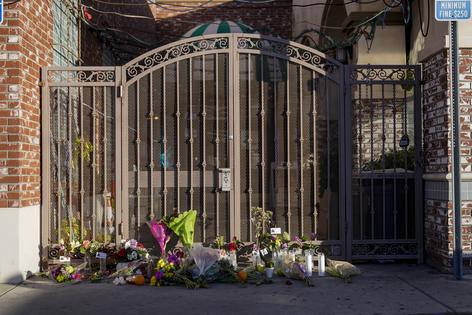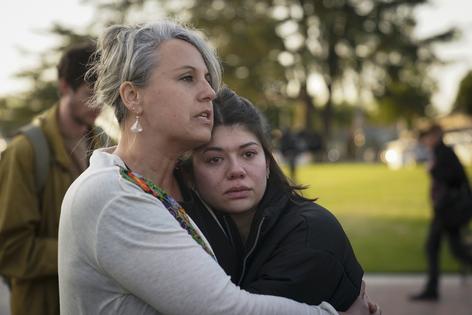Horror and anguish are playing out on repeat following the latest mass shooting – and the mental health scars extend far beyond those directly affected
Published in Health & Fitness
Yet another community is stricken with grief in the wake of the horrific shooting at Monterey Park, California, on Jan. 21, 2023, that left 10 people dead and 10 more wounded. Families and friends of the victims, as well as those who were injured, are no doubt gripped with grief, anguish and despair.
In addition to those who are experiencing direct loss, such events also take a toll on others, including those who witnessed the shooting, first responders, people who were nearby and those who hear about it through the media.
I am a trauma and anxiety researcher and clinician, and I know that the effects of such violence reach millions. While the immediate survivors are most affected, the rest of society suffers, too.
It is important to understand that no two people experience such horrific exposure in the same way. The extent of the trauma, stress or fear can vary. Survivors of a shooting may want to avoid the neighborhood where the shooting occurred or the context related to shooting, such as grocery stores, if the shooting happened at one. In the worst case, a survivor may develop post-traumatic stress disorder.
PTSD is a debilitating condition that develops after exposure to serious traumatic experiences such as war, natural disasters, rape, assault, robbery, car accidents – and, of course, gun violence. Nearly 8% of the U.S. population deals with PTSD. Symptoms include high anxiety, avoidance of reminders of the trauma, emotional numbness, hypervigilance, frequent intrusive memories of trauma, nightmares and flashbacks. The brain switches to fight-or-flight mode, or survival mode, and the person is always waiting for something terrible to happen.
When the trauma is caused by people, as in a mass shooting, the impact can be profound. The rate of PTSD in mass shootings may be as high as 36% among survivors. Depression, another debilitating psychiatric condition, occurs in as many as 80% of people with PTSD.
Survivors of shootings may also experience survivor’s guilt, the feeling that they failed others who died or did not do enough to help them, or just guilt at having survived.
PTSD can improve by itself, but many people need treatment. There are effective treatments available in the form of psychotherapy and medications. The more chronic it gets, the more negative the impact on the brain, and the harder to treat.
Children and adolescents, who are developing their worldview and deciding how safe it is to live in this society, may suffer even more. Exposure to horrific experiences such as school shootings or related news can fundamentally affect the way people perceive the world as a safe or unsafe place, and how much they can rely on the adults and society in general to protect them.
They can carry such a worldview for the rest of their lives, and even transfer it to their children. Research is also abundant on the long-term detrimental impact of such childhood trauma on a person’s mental and physical health and their ability to function through their adult life.
...continued











Comments